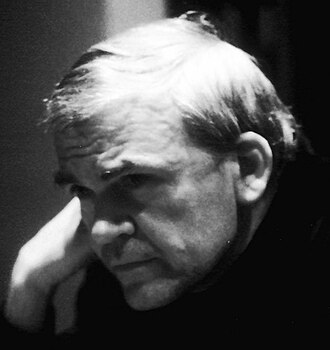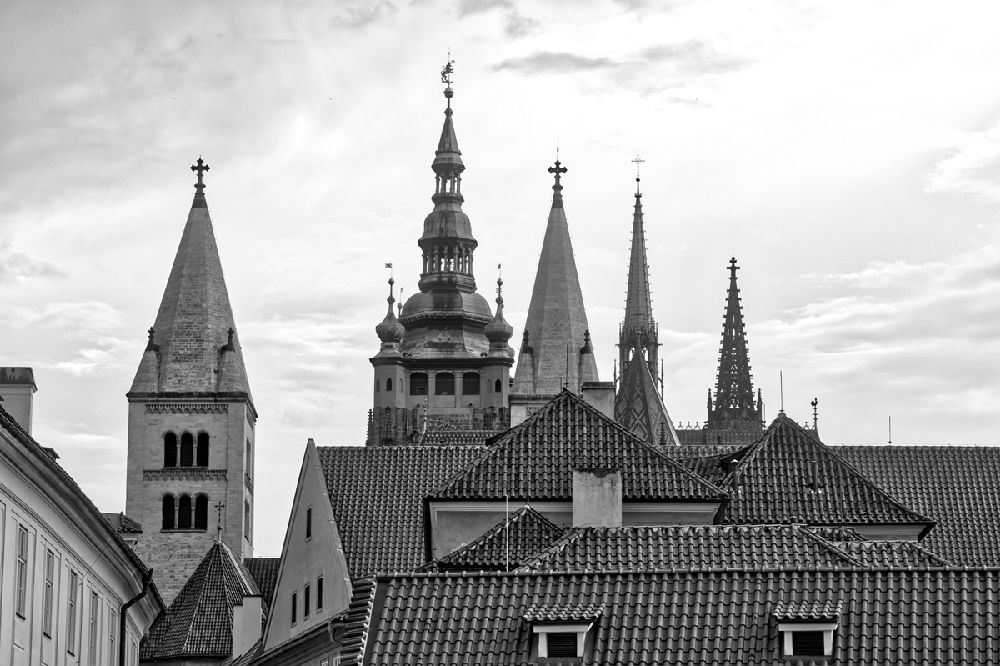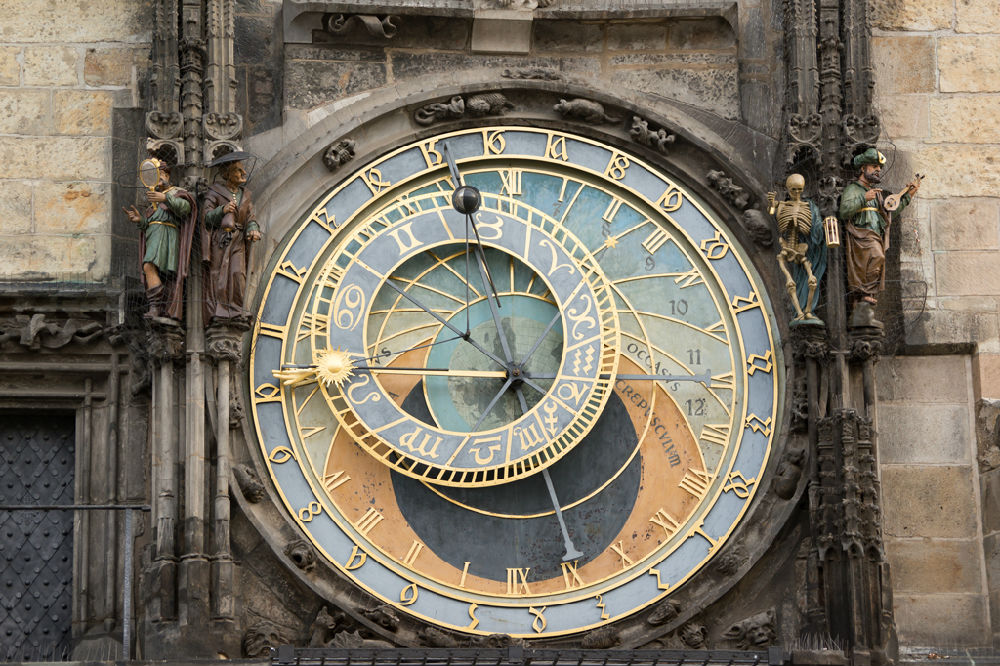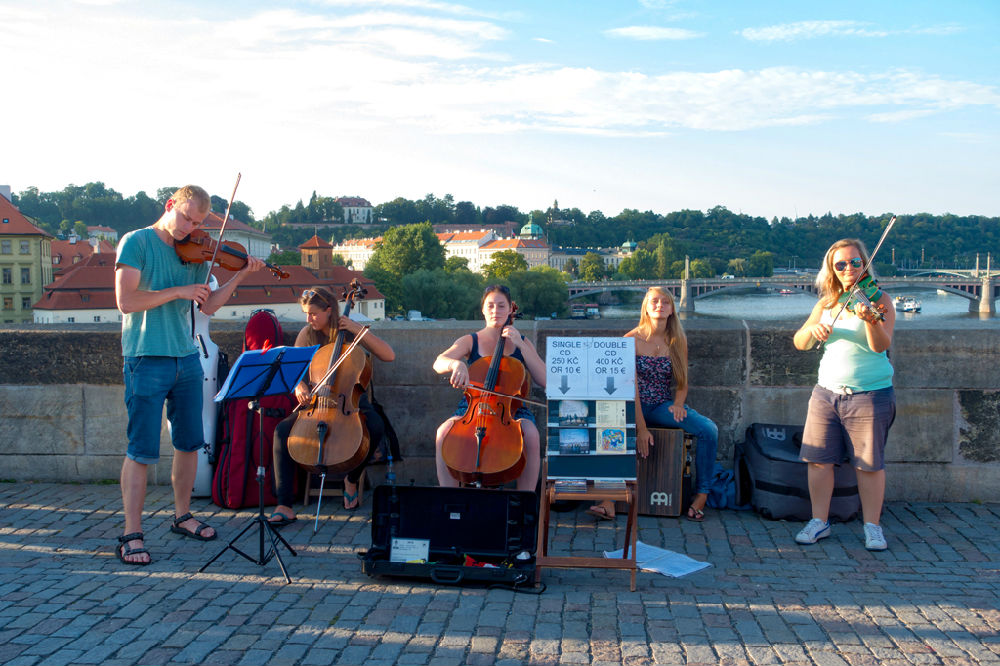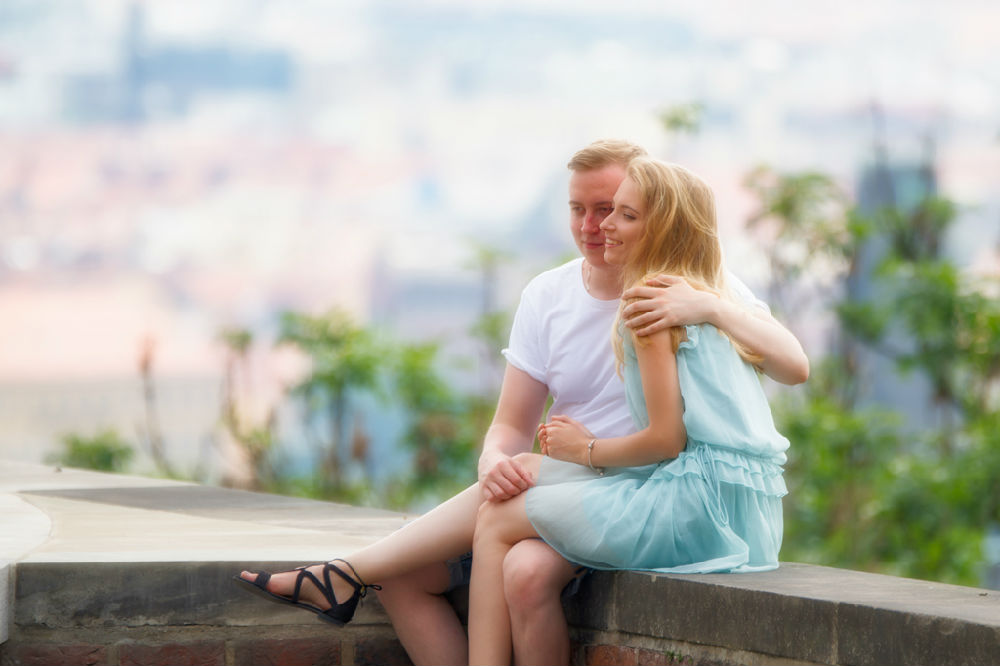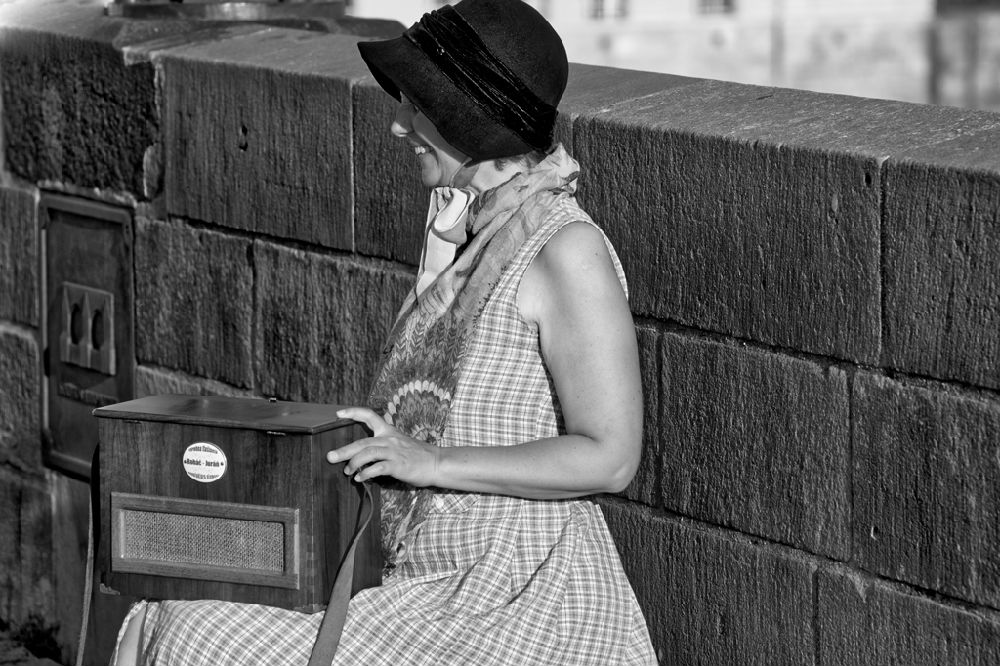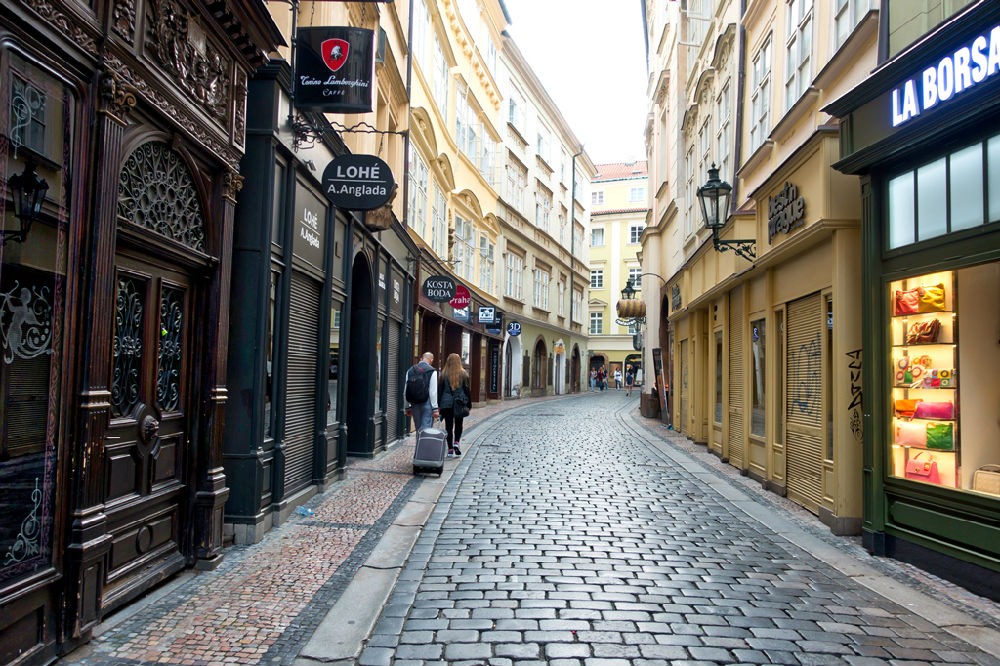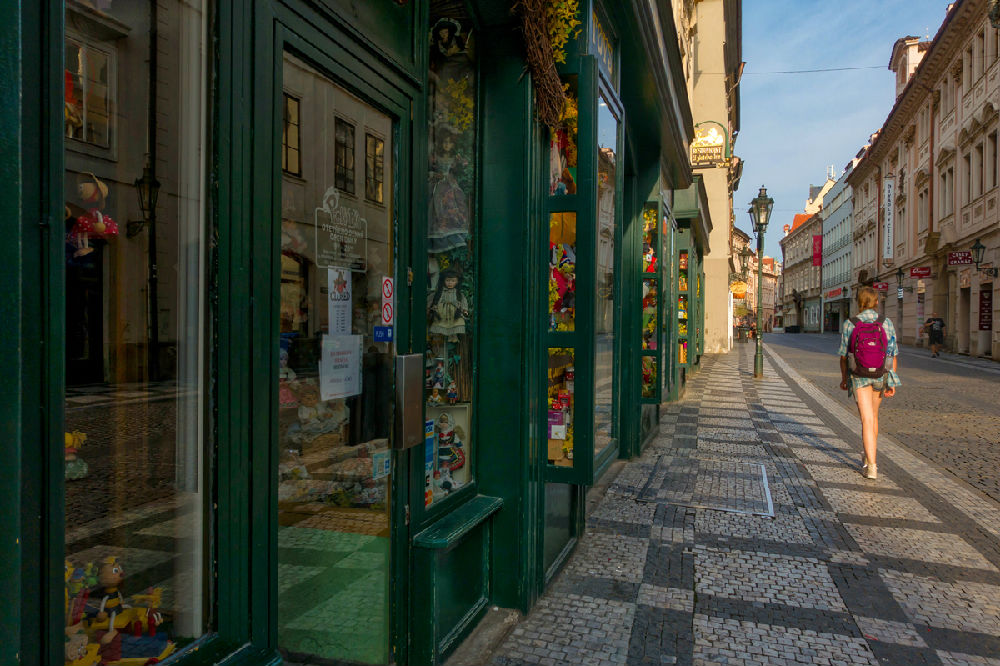| 布拉格-兩次革命-布拉格之春 |  |
| 槍口下的玫瑰 |
|
| 欣賞指數: |      |
 |
電影《布拉格之春》(The Unbearable Lightness of Being),一九八八年美國電影,導演是菲利普?考夫曼(Philip Kaufman),演員有Daniel Day-Lewis演Thomas,Juliette Binoche演Tereze,Lena Olin演Sabina。
|
The Unbearable Lightness of Being (Czech: Nesnesitelná lehkost bytí) is a 1984 novel by Milan Kundera, about two women, two men, a dog and their lives in the 1968 Prague Spring period of Czechoslovak history. Although written in 1982, this novel was not published until two years later, in a French translation (as L'Insoutenable légèreté de l'être). The original Czech text was published the following year. https://en.wikipedia.org/wiki/The_Unbearable_Lightness_of_Being Premise[edit]The Unbearable Lightness of Being takes place mainly in Prague in the late 1960s and early 1970s. It explores the artistic and intellectual life of Czech society from the Prague Spring of 1968 to the invasion of Czechoslovakia by the Soviet Union and three other Warsaw Pact countries and its aftermath. The main characters are: Tomáš, an adulterous surgeon; his wife Tereza, a photographer anguished by her husband's infidelities; Tomáš’s lover Sabina, a free-spirited artist; Franz, a Swiss university professor and lover of Sabina; and finally Šimon, Tomáš’s estranged son from an earlier marriage. Characters[edit]
Philosophical underpinnings[edit]Challenging Friedrich Nietzsche's concept of eternal recurrence (the idea that the universe and its events have already occurred and will recur ad infinitum), the story's thematic meditations posit the alternative: that each person has only one life to live and that which occurs in life occurs only once and never again – thus the "lightness" of being. Moreover, this lightness also signifies freedom; Tomáš and Sabina display this lightness, whereas Tereza's character is "weighed down". In the Constance Garnett translation of Tolstoy's "War and Peace" she gives us the phrase "strange lightness of being" during the description of Prince Andrey's death. In contrast, the concept of eternal recurrence imposes a "heaviness" on life and the decisions that are made – to borrow from Nietzsche's metaphor, it gives them "weight". Nietzsche believed this heaviness could be either a tremendous burden or great benefit depending on the individual's perspective.[1] The "unbearable lightness" in the title also refers to the lightness of love and sex, which are themes of the novel. Kundera portrays love as fleeting, haphazard and possibly based upon endless strings of coincidences, despite holding much significance for humans. In the novel, Nietzsche's concept is attached to an interpretation of the German adage Einmal ist keinmal ("one occurrence is not significant"), namely an "all-or-nothing" cognitive distortion that Tomáš must overcome in his hero's journey. He initially believes "If we only have one life to live, we might as well not have lived at all," and specifically (with respect to committing to Tereza) "There is no means of testing which decision is better, because there is no basis for comparison." The novel resolves this question decisively that such a commitment is in fact possible and desirable. [2] Publication[edit]The Unbearable Lightness of Being (1984) was not published in the original Czech until 1985 by the exile publishing house 68 Publishers (Toronto, Canada). The second Czech edition was published in October 2006, in Brno, Czech Republic, some eighteen years after the Velvet Revolution, because Kundera did not approve it earlier. The first English translation by Michael Henry Heim was published in hardback in 1984 by Harper & Row in the US and Faber and Faber in the UK and in paperback in 1985.[3] Film[edit]Main article: The Unbearable Lightness of Being (film)
In 1988, an American-made film adaptation of the novel was released starring Daniel Day-Lewis, Lena Olin and Juliette Binoche. In a note to the Czech edition of the book, Kundera remarks that the movie had very little to do with the spirit either of the novel or the characters in it.[4] In the same note Kundera goes on to say that after this experience he no longer allows any adaptations of his work.
布拉格,一座充滿矛盾的完美城市,現代和古老相輝映,琢磨出世界上最剔透的水晶琉璃,也孕育了卡夫卡、米蘭.昆德拉(Milan Kundera)的文學靈魂。而布拉格人是「以一個笑話,而不是一把劍,向被人瞧不起的獨裁者傳遞他們的優雅。」
「布拉格之春」,可說是從「卡夫卡熱」而來的民主運動,卻一路衝擊到日後東歐國家的民主改革。正如出身異議份子的劇作家、後來當選捷克總統的哈維爾(Havel)所說:「捷克和平革命的原動力,是一種深厚的人文傳統,這不是蘇聯坦克所能摧毀的。」 ~~~~~~~~~~~~~ 从“布拉格之春”看“社会帝国主义”鄢烈山从东欧回来近两个月,最忘不了的是布拉格。感觉不写点什么对不起这座美丽的历史文化名城:对不起布拉格古堡和查理大桥(神圣罗马帝国和波希米亚王国京城的标志性建筑);对不起卡夫卡住过的小屋黄金巷22号(在那里买了本台湾出版的卡夫卡绘画集);对不起哈谢克的好兵帅克(虽然没有时间到有名的帅克餐厅品味捷克美食);尤其对不起在网上看过的电影《布拉格之恋》(这部据昆德拉小说改编的情色政治电影,像中国名剧《桃花扇》一样,以儿女之情写历史事件,侧面表现1968年的“布拉格之春”)…… 翻检相关书籍和资料,书橱里冒出本《杜布切克回忆录》,此人乃“布拉格之春”的发起人,当时的捷克斯洛伐克共产党第一书记。我猛然想起此公1992年9月1日莫明其妙地遭遇车祸,不久逝世,这与《布拉格之恋》的男女主人公命运相似,他们也是有幸福感觉之时惨遭车祸而身亡。小说原著与电影改编都是在80年代,只能说软禁20年后复出的杜布切克的命运应验了作家的“预言”。 好在杜布切克留下了回忆录。中文版是黄英尚译,新华出版社2001年5月出版。我当时买下,一直没认真看。这回仔细地读了一遍,借这位最权威的知晓内幕最多的当事人的眼睛,对“布拉格之春”有了生动具体的了解。感触颇多,何妨就写这个话题报答布拉格呢? 这里先由此谈及什么叫“社会帝国主义”。这是个一度腾嚣中国,而20多年来被遗弃的概念。 不妨先抄网上关于苏军占领布拉格和捷国全境的资料(这样基本的历史事实在解密后的今天谁写都一样): 1968年8月20日晚11时,布拉格机场接到一架苏联民航客机信号:“机械事故,要求迫降”客机一降落,数十名苏军突击队员冲出机舱迅速占领机场。几分钟后,苏第105空降师乘30架安-12型运输机,从驻地白俄罗斯的维捷布斯克起飞,在战斗机和轰炸机掩护下,以每分钟1架的间隔空运到布拉格。1小时后,一辆苏联大使馆的汽车引路,苏军士兵直扑布拉格。 与此同时,苏联国防部副部长兼苏联陆军总司令指挥4个苏军坦克师、1个空降师和1个东德师从波兰直捣布拉格(西方向第一方面军);驻东德4个苏军师、1个德军师切断捷西部边界(西方向第二方面军);驻匈牙利苏军8个师、匈军2个师、保加利亚军一部从南部进攻(西南方向第一方面军);苏波联军4个师进攻北部(西方向第三方面军)。同时苏军对北大西洋公约组织与捷军开始全面电子压制。21日拂晓,苏军占领布拉格,逮捕杜布切克等党政军领导人。 当时赫鲁晓夫不顾兄弟党之间应有的礼仪,打算从机场直接前往波党八中全会所在地参加会议,被哥穆尔卡拒绝了这一要求。对波兰当年6月发生的波滋南事件,赫鲁晓夫的应对还算是比较宽容的,苏军也按波共要求退驻营房。但对稍后匈牙利爆发的民变,赫鲁晓夫却令苏军痛下杀手,共造成匈牙利人2700名死亡、13000名受伤;甚至残暴地劫持从南斯拉夫驻匈牙利大使馆回家的总理纳吉,并最终处死了他。
“社会帝国主义”说到底是帝国主义,不论它扯什么旗帜挂什么招牌。对于中国来说,从列宁宣称废除沙俄时代与中国签订的一切不平等条约(自然就包括了归还沙俄侵占中国的大片领土),到如今“硬汉”普京宣称“俄罗斯没有一寸多余的领土”(直接针对的是日本要求归还“北方四岛”,基本原则则适用于所有国际领土争端),中苏(中俄)关系的曲曲折折、恩恩怨怨一言难尽,不说也罢。
~~~~~~~~~~~~~~ 布拉格之念 ||| 推荐到群组 2005年的春天,因参加国际学术会议从北京到访过捷克首都布拉格,记得当时就被这个充满古欧风情的魅力之所迷倒了。转眼十一年过去,有个小小的念头一直存在心里,就是能够重访布拉格。上周,终于拾得机会,利用暑假,和家人朋友一起,再次徜徉在布拉格老城小方青石块铺成的街道上。 第一感物是人非。景依然还是那些景:来往穿梭的有轨电车;挤满人群的老广场;碧波粼粼的伏尔塔瓦河; 充满艺术气息的查理大桥;登高把全城美景尽收眼底的布拉格城堡......。和十几年前比,感觉人潮涌动愈加明显,更为明显的是同胞游客随处可见。还有,好不容易习惯了哥本哈根的高物价,来到布拉格消费,怎一个爽字了得! 在这个弥漫着烂漫气息,艺术气息和生活气息的城市悠闲地呆上几天,居然生出身份错位的感觉--以为游客们是这里真正的主人,而当地居民只是热情而忠实的服务生。 出发之前,在家里重温了一遍电影碟片?布拉格之恋?,试图为这次旅行注入些不同“逼格”的东西--当然,我以前也确实喜欢过朱丽叶比诺什(Juliette Binoche)主演的几部电影。回过头来看,有些元素已经渐渐远离我等的年龄层次。旅游就是旅游,把沉重历史背景下的烂漫而忧伤的爱情故事和怀揣浓浓诗哲味的米兰昆德拉们搁在一边,轻松惬意看风景也许更为合适。
(1)清晨的伏尔塔瓦河,宁静而祥和。
(2)游船穿梭在伏尔塔瓦河上
(3)沐浴夕晖的查理大桥
(4)已近子夜,许多游客依然在老城广场上坐着——就那么坐着,聊着。
(5)查理大桥一端的夜景
(6)从布拉格城堡俯瞰城区和查理大桥
(7)布拉格城堡的教堂尖顶特写
(8)
(9)著名的天文钟。布拉格天文钟包括三个主要部分:天文钟面,代表太阳和月亮在天空中的方位,显示各种天文资料;“行走的使徒”,每小时显示使徒和其他移动雕塑;下部的日历盘代表月份。关于天文钟的详尽资料可参考wiki。
(10)查理大桥上的乐队表演并推销他们的作品光碟
(11)查理大桥上的漫画家为游客作画
(12)一对恋人正深情地自拍留影——现实版的布拉格之恋
(13)“光天化日”下
(14)一位妇女身着传统服饰,在查理大桥上演奏手摇风琴。
(15)甫至还是离去?
(16)背影
http://blog.sciencenet.cn/blog-665782-994056.html 上一篇:生态之歌 38 李轻舟 王荣林 曾泳春 徐令予 罗德海 徐长庆 陆绮 蒋永华 刘欣 武夷山 刘玉仙 杨正瓴 张叔勇 岳东晓 高建国 王德华 王春艳 徐晓 杜敏彪 黄永义 李颖业 刘光银 赵美娣 钟炳 张红旗 韩玉芬 黄秀清 吉宗祥 朱晓刚 罗帆 许培扬 宁利中 余国志 李胜文 xlianggg jiareng louiexp againstlaw发表评论 评论 (20 个评论)
|
||||||||||||||||||||||||||||

